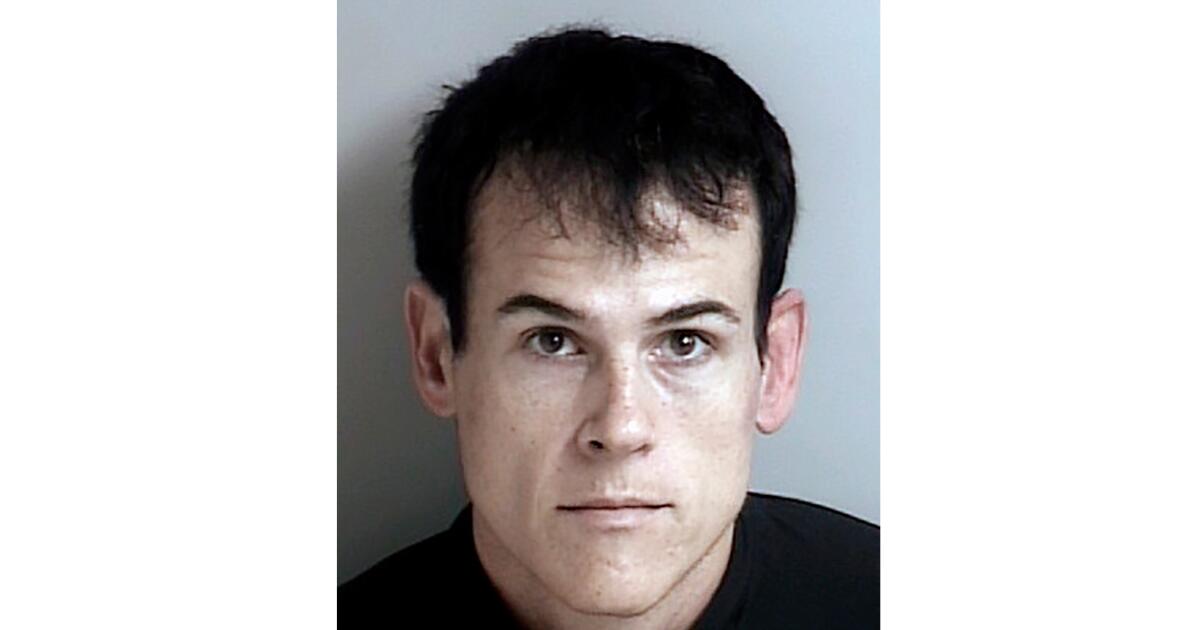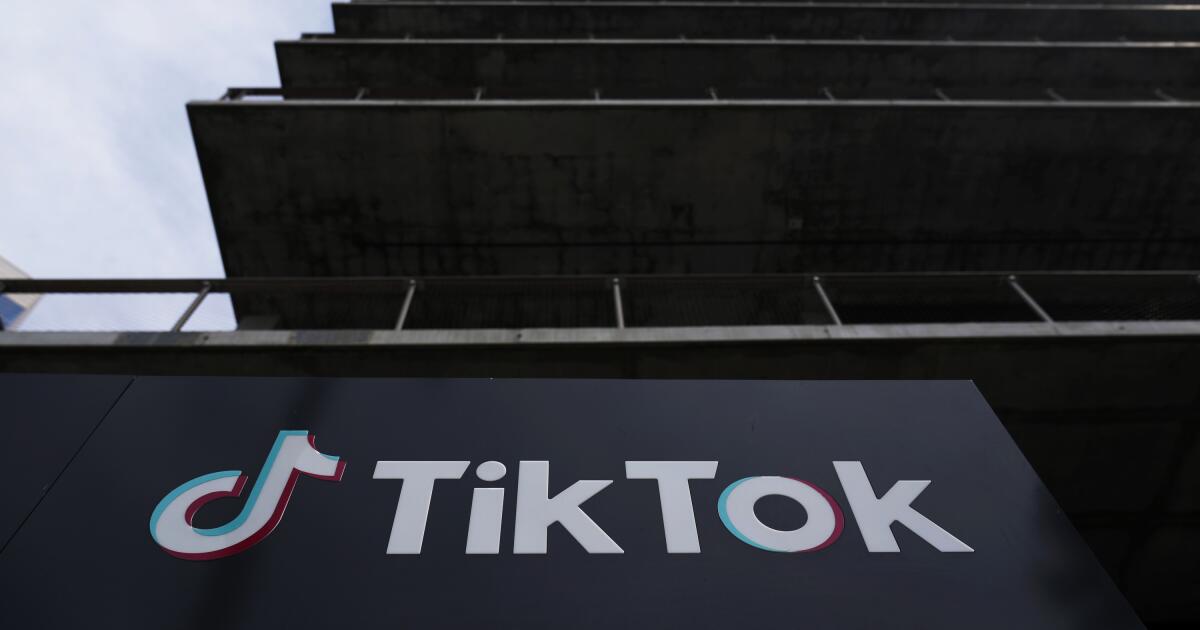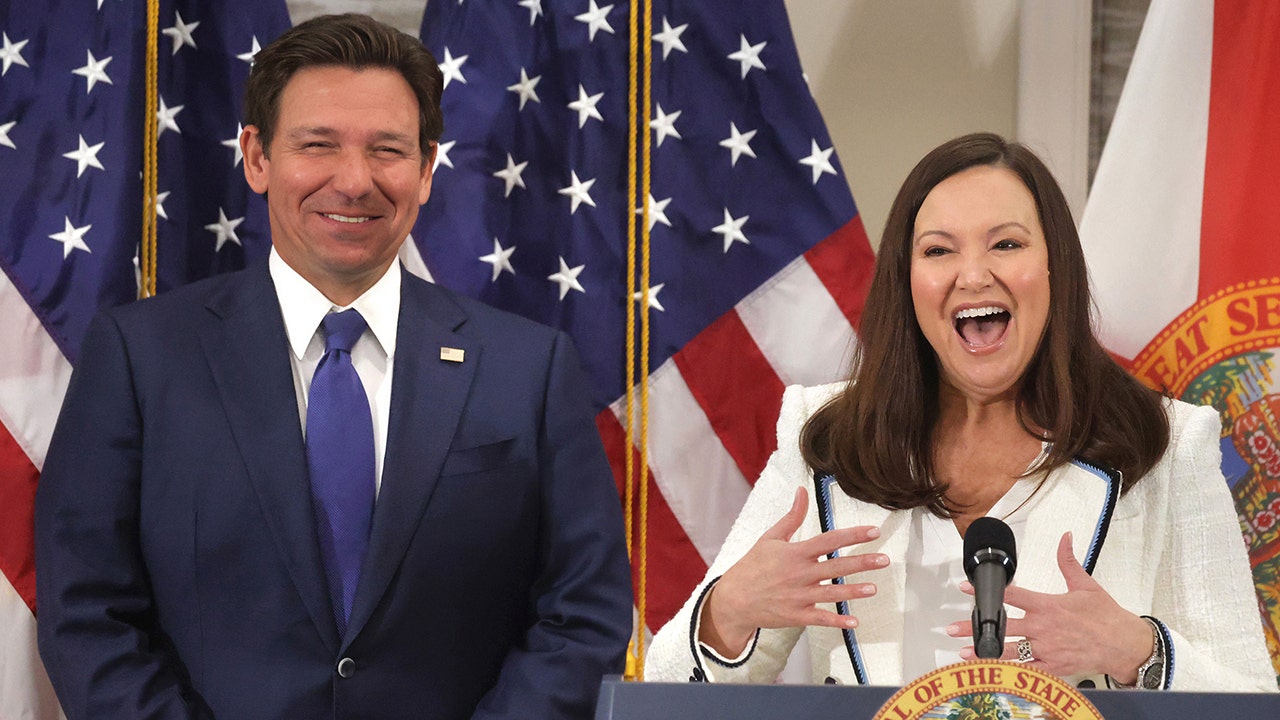Business
G.M. and Stellantis Paid $364 Million in Fuel Economy Fines

General Motors and Stellantis paid a combined $363.8 million in penalties for failing to meet federal fuel-economy standards for cars and trucks they produced in previous years, according to federal government documents posted on Friday.
G.M. paid $128.2 million for failing to meet the targets with the light trucks it sold in 2018 and 2019, according to documents published on the National Highway Traffic Safety Administration’s website. Stellantis, the company created when Fiat Chrysler merged with the French automaker Peugeot, paid $235.6 million for cars it sold in 2016 and 2017.
G.M. paid its fine in December, the documents showed, and Stellantis made payments in December and May. The payments were reported earlier by Reuters.
The fines stem from years before each company started producing electric and hybrid vehicles in significant numbers. The penalties were levied under the corporate average fuel-economy standards that the safety agency oversees.
The fuel economy standards date back to before electric vehicles and hybrid cars were widely available. For many years, automakers routinely paid fines for falling short of regulatory targets. But the penalties were typically much smaller than the sums that G.M. and Stellantis recently paid.
In recent years, G.M., Stellantis and other automakers have avoided paying fines by purchasing fuel-economy credits from manufacturers that produced electric or other zero-emission vehicles. G.M. covered its 2016 and 2017 penalties with credits, but it elected to pay fines in 2022, the federal documents said.
G.M. and Stellantis, along with most other automakers, are rushing to roll out new electric models and expect a majority of the vehicles they sell to be electric within a decade.
Stellantis said it was investing $35 billion to develop battery-powered vehicles and related software, planning to offer 25 electric models in the United States by 2030. The penalties it paid reflect “past performance recorded before the formation of Stellantis, and is not indicative of the company’s direction,” the company said in a statement.
G.M. has said it hopes to produce a million electric vehicles annually by 2025, and to end production of combustion-engine vehicles by 2035.

Business
Supreme Court upholds law that could force TikTok to shut down in U.S.

WASHINGTON — The Supreme Court on Friday upheld a law that calls for the shutdown of the U.S. operations of social media app TikTok due to privacy and security concerns related to its Chinese owner.
The justices in a unanimous opinion said the 2024 law does not violate the 1st Amendment or its protection for freedom of speech. The ruling means 170 million Americans may lose access to the popular social media platform as soon as Sunday.
“There is no doubt that, for more than 170 million Americans, TikTok offers a distinctive and expansive outlet for expression, means of engagement, and source of community,” the court said in an unsigned opinion. “But Congress has determined that divestiture is necessary to address its well-supported national security concerns regarding TikTok’s data collection practices and relationship with a foreign adversary. .. we conclude that the challenged provisions do not violate petitioners’ 1st Amendment rights.”
The decision appears to leave the U.S. fate of TikTok to either a last-minute sale by its Chinese owners, or a reprieve from President Biden or President-elect Donald Trump.
Trump takes office on Monday, the day after the shut-down law is due to take effect. Recently, Trump has said he will try to work out a deal that keeps TikTok in operation, presumably by separating it from Chinese government control.
Last year, the House and Senate by large bipartisan votes approved the shut-down law, citing national security fears that ByteDance, TikTok’s parent company, was gathering data on tens of millions of Americans.
Congress decided TikTok must separate itself from its ownership by a “foreign adversary.”
In defense of the law, U.S. Solicitor General Elizabeth Prelogar told the justices that TikTok and ByteDance “collect vast swaths of data about tens of millions of Americans,” which China “could use for espionage or blackmail.”
In its 20-page “per curiam” opinion Friday, the court said the case turned on the ownership and control of TikTok, not free speech.
While TikTok is “operated in the United States by TikTok Inc., an American company incorporated and headquartered in California,” its “ultimate parent company is ByteDance Ltd., a privately held company that has operations in China. ByteDance Ltd. owns TikTok’s proprietary algorithm…and is subject to Chinese laws that require it to ‘assist or cooperate’ with the Chinese government’s ‘intelligence work’ and to ensure that the Chinese Government has ‘the power to access and control private data’ the company holds.”
Second, the court said the shut-down law is not targeted at speech or expression. The 1st Amendment protects against the government’s efforts to control the “content” of the speech, but that is not at issue in this case, the court said.
The law “does not regulate the creators…and directly regulates ByteDance and TikTok only through the divestiture requirement.”
The free-speech advocates who sued to block the law “have not identified any case in which this court has treated a regulation of corporate control as a direct regulation of expressive activity or semi-expressive conduct. We hesitate to break that new ground in this unique case.”
Biden and his administration tried and failed to make progress on a separation agreement. Government lawyers told the court they did not find ByteDance to be trustworthy.
But Trump may see it differently. Though he originally supported efforts to ban TikTok in the U.S., he recently changed his position. “I have a warm spot in my heart for TikTok,” Trump said last month.
One provision of the law allows the president to give TikTok a 90-day extension if it is determined there has been “significant progress” toward arranging a “qualified divestiture” from its foreign owners.
Business
Musk and Zuckerberg Reflect New Blows Against D.E.I. Policies

The war on D.E.I. intensifies
Even before Donald Trump won in November, the conservative backlash against diversity, equity and inclusion policies was going strong.
But new revelations about the next Trump administration’s efforts to constrain what’s commonly known as D.E.I. — and corporate titans’ willingness to put such programs aside — suggest just how strident the pushback will be.
Elon Musk’s cost-cutting initiative is eyeing big cuts to federal diversity programs, according to The Washington Post. The nongovernmental panel, the Department of Government Efficiency, is said to be considering a report by a right-wing civil rights group that claims to have identified more than $120 billion in potential cuts in D.E.I.-related programs.
Among them, according to The Post, are ending programs to benefit Black farmers and businesses, as well as a Biden-era executive order reserving 15 percent of federal contracts for minority-owned businesses. (Separately, the F.B.I. confirmed that it had closed its Office of Diversity and Inclusion, prompting Trump to express anger that it had existed at all.)
The Times shed more light on Mark Zuckerberg’s move to unwind D.E.I. at Meta. In a meeting with Stephen Miller, the influential Trump aide, Zuckerberg signaled that he would do nothing to obstruct the president-elect’s agenda of cracking down on corporate D.E.I. culture. The tech mogul said new guidelines were coming — and soon after announced a rollback of content moderation rules and an end to Meta’s D.E.I. efforts.
Moreover, Zuckerberg blamed Sheryl Sandberg, his former longtime lieutenant who was known for cultural advocacy programs like Lean In, for encouraging employee self-expression in the workplace, The Times adds. (The revelation stoked outrage online.)
The news underscores how defenses of D.E.I. are faltering. Many companies had already been rethinking their commitment to diversity programs before Trump’s victory, especially after the Supreme Court struck down affirmative action at universities. But several corporate giants, including Amazon and McDonald’s, have ended or scaled back such programs post-election.
For some corporations, work on diversity will still take place, using language that isn’t as politically charged. But as corporate leaders respond to pressure from ascendant right-wing activists and seek to get on Trump’s good side, the pressure on D.E.I. isn’t going away.
-
In related news: Meta’s chief technology officer said the company had mishandled how it rolled out changes to diversity policies and content moderation. And for some workers whose careers haven’t advanced how they like, diversity programs may have simply been an excuse to sugarcoat the real reason they were passed over, according to a Wall Street Journal column.
HERE’S WHAT’S HAPPENING
Israel’s security cabinet meets to approve the cease-fire deal. The vote is taking place after Israeli and Hamas negotiators resolved remaining disputes, with ministers expected to clear the agreement this weekend. If approved, Israel would withdraw eastward and both sides would release hostages or prisoners, potentially paving a path to ending the 15-month war.
China’s economy grows, but its population shrinks again. New data showed that the Chinese economy grew 5 percent last year, with increased exports and investment in manufacturing offsetting a slump in construction. But Beijing also disclosed that China’s population fell for a third straight year, despite an unexpected rise in births, portending a longer-term challenge to economic growth.
The Biden administration files a final flurry of regulatory actions. Regulators including the Consumer Financial Protection Bureau, the Environmental Protection Agency, the Federal Trade Commission and the Justice Department struck settlements with companies including American Express, Block, General Motors and Toyota, and recommended charges against the parent of Snapchat. They’re a last burst of oversight actions before the Trump administration, which is expected to take a lighter hand in regulating business, takes office next week.
Markets feel reassured by Bessent
Bitcoin, stock futures and government bonds — all are rallying modestly on Friday, the final trading day of the Biden era.
Their fortunes appear to be buoyed by renewed bullishness for the next Trump administration, with investors feeling relieved about what they’ve heard from the president-elect’s Cabinet picks on how they intend to operate.
Markets were especially heartened by Donald Trump’s Treasury secretary pick, Scott Bessent. In his confirmation hearing on Thursday, Bessent played down the inflationary risks of Trump’s agenda.
Here are the highlights:
-
Bessent called for renewing and extending Trump’s 2017 tax cuts to avert “economic calamity.” But while he said cutting fiscal spending was also important, he was noncommittal about repealing the country’s debt ceiling and said entitlement programs like Medicare would be safe.
-
He said tariffs should be imposed on select countries to fix trade imbalances or used as leverage to negotiate favorable trade deals. A new round directed at China seems inevitable. In response, China is zeroing in on American chipmakers.
-
Bessent said that Fed independence is key to American fiscal stability. But he warned that Trump, who has long grumbled about high interest rates, was still “going to make his views known.”
-
He demurred on the idea of the Fed creating a digital currency. Still, Bloomberg reports that Trump is expected to designate crypto as a national priority. Speculation is also growing that Trump will greenlight a federal Bitcoin reserve.
Other confirmation hearings raised questions about how the second Trump administration was shaping up. Gov. Doug Burgum of North Dakota, the choice for interior secretary, criticized renewables as part of a wider national “electricity crisis.” The country needed to refocus on fossil fuels to maintain its global lead in energy-intensive sectors like artificial intelligence, he added.
But Lee Zeldin, Trump’s choice to lead the Environmental Protection Agency, dodged questions about Trump’s repeated vows to roll back or scrap the Inflation Reduction Act, Biden’s signature climate legislation.
And Scott Turner, the former N.F.L. player tapped to head the Department of Housing and Urban Development, offered little detail about how he would address a housing crunch. His lack of clarity came as new Freddie Mac data showed mortgage rates hitting an eight-month high.
The surge is pricing some prospective buyers out of the market — despite the Fed having lowered borrowing costs — in a trend that has alarmed some market watchers.
The TikTok countdown continues
As TikTok nears a potential ban in the United States, elected officials are racing to find ways to delay a crisis that many of them helped stoke by backing the law behind the punishment.
Here’s where things stand.
President Biden is trying to make it Donald Trump’s problem. An administration official told NBC News that the White House was “exploring options” to forestall the app from going dark. Biden also does not plan to fine the companies that host the TikTok app, like Google and Apple, according to NBC News.
That would leave it up to Trump to enforce any punishments against TikTok and its partners. The president-elect has been weighing an executive order to let the app keep running until a U.S. buyer is found, though it is unclear how effective that would be.
Senate Democrats scrambled to arrange a delay. Lawmakers led by Ed Markey of Massachusetts, Chris Van Hollen of Maryland and Cory Booker of New Jersey have sought to pass a bill giving TikTok more time to find a buyer. But Senator Tom Cotton, Republican of Arkansas, objected, citing concerns about dangers posed by the app.
A spokesperson for Senator Chuck Schumer, Democrat of New York, told The Wall Street Journal that the minority leader spoke with Biden on Thursday about creating a delay.
TikTok’s C.E.O. is continuing to court Trump as well. In addition to sitting on the dais for the inauguration with top Cabinet picks and other tech moguls, Shou Chew is hosting a party for pro-Trump creators Sunday night, which will cost TikTok about $50,000 to throw.
Chew is also expected to attend a Trump victory rally on Sunday at the Capital One Arena, sitting in the suite of Raul Fernandez, a Trump donor and a partner at Monumental Sports and Entertainment, the sports team owner.
Musk’s gaming rank
Elon Musk has famously and unapologetically clashed with regulators and heads of state. But he is coming up against opponents who appear to have touched a nerve: gamers who have questioned his claims to video game mastery.
A recap: Musk has boasted lately on X lately about his gaming prowess, including soaring to the top of the global leader boards in Diablo IV and Path of Exile 2. Such feats require skills, sure, but also a lot of screen time, leading skeptics to question how the C.E.O. of six companies and a key adviser to Donald Trump finds the time.
Online sleuths increasingly believe they have found the answer: They’ve accused Musk of paying others to use his accounts and put in the hours to boost his rankings.
A popular YouTube gaming personality named Asmongold in particular accused Musk of being disingenuous about his rapid rise to the top.
Musk has taken those charges personally. The billionaire has shared videos of himself in action as a way to prove he’s the real deal. Musk also fired back at Asmongold, saying of the YouTuber, “he is NOT good at video games.”
Others came to Asmongold’s defense, using X’s Community Notes feature to annotate Musk’s posts.
Given the level of discussion online, this spat feels like it’s far from over.
THE SPEED READ
Deals
-
Rio Tinto and Glencore reportedly held talks last year about a deal, which would have combined two of the world’s biggest miners, though discussions aren’t currently active. (Bloomberg).
-
Junior investment bankers beware: Artificial intelligence tools can write 95 percent of an I.P.O. prospectus in minutes, according to David Solomon, Goldman Sachs’s C.E.O. (FT)
Politics, policy and regulation
-
Meet Ken Howery, the tech investor and friend of Elon Musk who will spearhead any deal talks with Denmark over Greenland. (NYT)
-
A group representing Capitol Hill staffers who work for progressive lawmakers is pushing for a 32-hour workweek. (Politico)
Best of the rest
-
A SpaceX rocket broke up on Thursday during a test flight, forcing the F.A.A. to divert several commercial flights to avoid the debris. (CNBC)
-
David Lynch, the director behind classic movies and TV shows including “Blue Velvet,” “Mulholland Drive” and “Twin Peaks,” has died. He was 78. (NYT)
We’d like your feedback! Please email thoughts and suggestions to dealbook@nytimes.com.
Business
Column: A stem cell clinic tees up a Supreme Court challenge to rules protecting patients' health and safety

For years, the Food and Drug Administration has taken up arms against clinics hawking unproven and ineffective stem cell treatments to desperate patients looking for cures of intractable diseases and conditions such as Alzheimer’s, Parkinson’s, multiple sclerosis and even erectile dysfunction.
As the FDA has repeatedly cautioned, there is no scientifically validated evidence that these treatments work. They’re typically not covered by insurance. For the clinics, however, they’re money-makers, with fees of $9,000 or more per treatment; the clinics often recommend multiple treatments.
But now the FDA’s campaign against these bogus therapies is facing serious headwinds on two fronts.
[The FDA is] likely to be subjected to enormous political pressure during Trump 2.0 to weaken oversight of cell and regenerative products.
— Paul S. Knoepfler, UC Davis
One is the Supreme Court. A California stem cell network that recently lost a lawsuit brought by the FDA has signaled that it intends to appeal to the Supreme Court. It’s far from certain that the court will take up the appeal, at this stage — but a majority of the justices have looked favorably on efforts to rein in administrative agencies such as the FDA.
“I think it’s highly unlikely … but not impossible” that the court will take up the stem cell case, says Henry T. Greely, an expert in the legal issues involving bioscientific technologies.
The case doesn’t have the customary hallmarks of cases that warrant Supreme Court action, Greely told me, such as disagreements among appellate circuits requiring resolution. But it may suit the ideological bent of four justices — the minimum number required to place a case on the Supreme Court docket.
“Some of these justices really hate administrative agency power,” Greely says.
In a landmark ruling last year, the Supreme Court struck down a 40-year-old precedent—the Chevron doctrine — that required courts to accept federal agencies’ interpretations of the laws they administer as long as their interpretations weren’t openly unreasonable. That sharply narrowed agency authority. The FDA has ranked high on the list of agencies that conservatives see as exercising excessive authority.
It may not take a Supreme Court decision to hamper the FDA’s campaign against bogus stem cell treatments.
“Just the possibility that [the Supreme Court] could take this case may have a chilling effect on FDA activity in the stem cell clinic space,” Paul S. Knoepfler, a UC Davis biologist who has assiduously tracked the industry, told me. Even without the case, he says, the FDA is “likely to be subjected to enormous political pressure during Trump 2.0 to weaken oversight of cell and regenerative products.”
That brings us to the second threat, coming from Donald Trump’s nominee as secretary of Health and Human Services, Robert F. Kennedy Jr. Even before his nomination, Kennedy made clear that he was girding to go to war against the FDA, which would come under his jurisdiction at HHS.
In an Oct. 25 tweet, he declared “FDA’s war on public health is about to end.” He specifically accused the agency of “aggressive suppression” of stem cells as well as “psychedelics, peptides, … raw milk, hyperbaric therapies, chelating compounds, ivermectin, hydroxychloroquine … and anything else that advances human health and can’t be patented by Pharma.”
Kennedy wasn’t clear what he meant by his reference to stem cells or whether he was referring to the unproven stem cell treatments marketed by the clinics facing FDA regulation.
Many of the other items in his litany have been shown to be ineffective for their marketed purposes — ivermectin and hydroxychloroquine, for example, have been touted as treatments for COVID-19 even though scientific studies have shown them to be useless against the disease. I asked Kennedy to clarify his reference to stem cells but haven’t received a reply.
Here’s a brief primer on what these clinics are selling. Typically, their method involves removing fat cells from a customer via liposuction, treating the fat ostensibly to extract stem cells, and injecting those cells into the customer’s body.
For instance, Cell Surgical Network, a defendant in the FDA’s California case, boasts of offering “innovative solutions” for spine disease, knee problems and other orthopedic conditions; lupus, Crohn’s and other autoimmune diseases; ALS, Parkinson’s and multiple sclerosis; cardiac conditions; and glaucoma, among other issues. None of these claims has been supported by scientific research.
The only stem cell products the FDA has approved for use are stem cells extracted from umbilical cord blood, and then only for rare blood disorders.
Like other clinics, Cell Surgical has asserted that its products are exempt from oversight because, as reimplantations of a customer’s own tissue, they don’t meet the law’s definition of “drugs.”
They also claim the “same surgical procedure” exemption from FDA regulation, which the agency typically applies to procedures in which a patient’s tissue is given only minimal processing before being used, such as in skin grafting or coronary artery bypass surgery. The FDA holds that the stem cell clinics subject the tissues to significant processing and that the procedures are separate surgical events.
Before the FDA acted, both the Florida and California clinic networks had been operating for years. The Florida company had been operating since at least 2014, and Lander and Berman had founded their California Stem Cell Treatment Center in Rancho Mirage in 2010. By 2018, the FDA said in its lawsuit, Lander had claimed that affiliated clinics had administered the technique he and Berman developed to more than 6,000 patients.
Yet the FDA sometimes seems to be fighting a losing battle, or at least a whack-a-mole battle, against clinics offering dubious stem cell treatments. There are just too many — more than 1,000, by Knoepfler’s reckoning — making pitches to desperate customers seeking cures against intractable conditions.
That has left things up to state and local regulators, but the record there is spotty. A notable recent success can be chalked up to Georgia Atty. Gen. Chris Carr, who announced on Jan. 8 that in conjunction with the Federal Trade Commission he had obtained judgments totaling more than $5.1 million from the operators of bogus stem cell clinics. The sum includes refunds of more than $3.3 million for 479 customers, most of whom were “older or disabled adults” who had been “sold expensive, unproven stem cell products.”
In June 2019, federal Judge Ursula Ungaro of Miami ordered U.S. Stem Cell of Florida effectively shut down, siding with the FDA in a lawsuit the agency had filed in May 2018.
The FDA’s case against California-based Cell Surgical Network and its affiliates took a somewhat different course. The agency filed suit in California federal court against the network and its physician-proprietors, Elliott B. Lander and the late Mark Berman, the same day it sued the Florida firm. But it lost at the trial stage in August 2022, when federal Judge Jesus Bernal of Riverside accepted the defendants’ claim that they were entitled to the “same surgical procedure” exemption from FDA oversight.
Bernal’s decision, however, was overturned last September by the San Francisco-based 9th Circuit Court of Appeals, which found in a 3-0 ruling that the FDA’s interpretation of the law “is the only interpretation that makes sense.” The appeals court sent the case back to Bernal with instructions to reconsider the case in light of its finding.
That’s where things stood until Jan. 6, when Cell Surgical Network and its affiliated defendants asked the appellate court to suspend its order to remand the case to Bernal, pending an appeal to the Supreme Court. The FDA opposed the motion, arguing that the Supreme Court is unlikely to take up the case. The appellate court rejected the network’s motion Tuesday, but the network hasn’t indicated that it intends to drop the Supreme Court appeal. I asked its lawyers if their plans have changed but haven’t received a reply.
As I’ve written before, undermining the FDA’s authority has been a right-wing project for years. That’s because the agency’s duty is to stand in the way of businesses desiring to push unsafe and ineffective nostrums at unwary consumers, and also in the way of a perverse idea that personal freedom includes the freedom to be gulled by charlatans.
In 2018, then-President Trump signed a right-to-try law that purportedly gave victims of terminal diseases access to experimental treatments that might save them.
But despite claims that it was designed as a “compassionate measure” for terminal patient, the law was a scam perpetrated by the Koch network and its allies, aimed at undermining the FDA’s authority to make sure our drugs are safe and effective. Sen. Ron Johnson (R-Wis.) ultimately gave the game away, informing then-FDA Commissioner Scott Gottlieb, a critic of the law, that its purpose was to “diminish the FDA’s power over people’s lives, not increase it.”
In 2023, GOP-appointed judges on the right wing-dominated 5th Circuit Court of Appeals ruled that the FDA had exceeded its authority in advising against the use of ivermectin against COVID. “The FDA can inform,” the court said, “but it has identified no authority allowing it to recommend consumers ‘stop’ taking medicine.” (Emphasis in the original.)
There may not be much distance between that finding by the 5th Circuit and a decision by the current Supreme Court majority that the FDA overstepped its bounds in not only informing consumers of the dangers of taking unproven and even dangerous stem cell treatments, but blocking the treatments by seeking to put clinics that sell them.
“MAGA loves stem cell clinics,” Greely says. “Why? It gives people a chance to make a lot of money, and because it’s a change for people to say ‘no bureaucrat is going to tell me what to do.’”
If the trend continues along these lines, you can expect more providers collecting more dollars by pushing worthless therapies to desperate customers. The threat to Americans’ health will be very real indeed.
-
/cdn.vox-cdn.com/uploads/chorus_asset/file/25822586/STK169_ZUCKERBERG_MAGA_STKS491_CVIRGINIA_A.jpg)
/cdn.vox-cdn.com/uploads/chorus_asset/file/25822586/STK169_ZUCKERBERG_MAGA_STKS491_CVIRGINIA_A.jpg) Technology1 week ago
Technology1 week agoMeta is highlighting a splintering global approach to online speech
-

 Science6 days ago
Science6 days agoMetro will offer free rides in L.A. through Sunday due to fires
-
/cdn.vox-cdn.com/uploads/chorus_asset/file/25821992/videoframe_720397.png)
/cdn.vox-cdn.com/uploads/chorus_asset/file/25821992/videoframe_720397.png) Technology1 week ago
Technology1 week agoLas Vegas police release ChatGPT logs from the suspect in the Cybertruck explosion
-

 News1 week ago
News1 week agoPhotos: Pacific Palisades Wildfire Engulfs Homes in an L.A. Neighborhood
-

 Education1 week ago
Education1 week agoFour Fraternity Members Charged After a Pledge Is Set on Fire
-

 Business1 week ago
Business1 week agoMeta Drops Rules Protecting LGBTQ Community as Part of Content Moderation Overhaul
-

 Politics1 week ago
Politics1 week agoTrump trolls Canada again, shares map with country as part of US: 'Oh Canada!'
-
/cdn.vox-cdn.com/uploads/chorus_asset/file/23935558/acastro_STK103__01.jpg)
/cdn.vox-cdn.com/uploads/chorus_asset/file/23935558/acastro_STK103__01.jpg) Technology6 days ago
Technology6 days agoAmazon Prime will shut down its clothing try-on program














